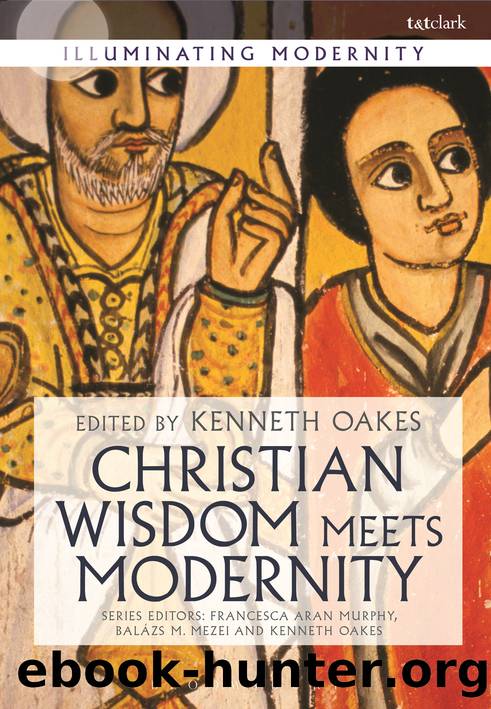Christian Wisdom Meets Modernity by Kenneth Oakes

Author:Kenneth Oakes
Language: eng
Format: epub
Publisher: Bloomsbury UK
Published: 2016-11-15T00:00:00+00:00
8
Karol WojtyÅaâs Aims and Methodology
Adrian Reimers
Interpreting WojtyÅa: A Proposal
The theology of the body lies at the heart of Karol WojtyÅaâs thought. The nature of human love is the conceptual focus of his thought and writing up to the October 1978 Conclave, as well as a kind of link between his scholarship and his papacy, for the first major catechesis of his papacy was precisely the theology of the body. In other words, if we regard Person and Act as his philosophical masterwork and culmination of his philosophical reasoning, then we are led into thinking that Karol WojtyÅaâs principal concerns were philosophical, and his election to the papacy the abrupt end of an interesting philosophical career. If Person and Act is his central work, then our task is threefold: to interpret this difficult book as a contribution to an ongoing conversation among certain continental philosophers; to tease out the ontology implicit in this personalist phenomenology; and to determine whether he has broken with the Thomistic tradition, for which he frequently expresses admiration. I suggest, however, that for a more accurate reading of the WojtyÅan corpus, his thought should be interpreted in terms of the later work Man and Woman He Created Them, originally written in Polish and eventually presented as the theology of the body audiences.1 Precisely this is his fundamental work in relation to which all his other writings make sense.
This thesis also helps to resolve a controversy among Catholic philosophers about the nature of his thinking. Person and Act, his presumed Hauptwerk, is manifestly phenomenological. In it WojtyÅa openly acknowledges his debt to Max Scheler, and the English translation and edition of the work appeared as volume X in the series Analecta Husserliana. There WojtyÅa uses language familiar to phenomenologists, speaking of consciousness and intentionality, juxtaposing his presentation of the human act with that of more traditional philosophy. In this same work, however, WojtyÅa offers clear signals that he is not simply and completely a phenomenologist, as he rejects certain positions that seem central to classical phenomenology, for instance, that cognition or knowledge is an activity of consciousness, as he instead insists that knowledge must be prior to and foundational for consciousness.2
Furthermore, his philosophical thinking began with Thomism. Although the evidence for this can be discerned throughout his writings, we may simply take his word for it. Narrating the story of his journey to the priesthood to French journalist André Frossard, Pope John Paul II told about his first encounter with Thomistic metaphysics as an underground seminarian in Kraków. His tutor, Fr Kazimierz KÅósak, gave him a copy of Kazimierz Waisâs Metaphysics3 with the instructions to study it and prepare to be examined on it. Young WojtyÅa read the book and was profoundly affected by it, despite its difficulty and reputed dryness: âWhen I passed the examination, I told my examiner that in my view the new vision of the world which I had acquired in my struggle with that metaphysics manual was more valuable than the mark which
Download
This site does not store any files on its server. We only index and link to content provided by other sites. Please contact the content providers to delete copyright contents if any and email us, we'll remove relevant links or contents immediately.
The Lost Art of Listening by Michael P. Nichols(7457)
Why I Am Not A Calvinist by Dr. Peter S. Ruckman(4125)
The Rosicrucians by Christopher McIntosh(3493)
Wicca: a guide for the solitary practitioner by Scott Cunningham(3151)
Signature in the Cell: DNA and the Evidence for Intelligent Design by Stephen C. Meyer(3104)
Real Sex by Lauren F. Winner(2990)
The Holy Spirit by Billy Graham(2919)
To Light a Sacred Flame by Silver RavenWolf(2792)
The End of Faith by Sam Harris(2711)
The Gnostic Gospels by Pagels Elaine(2503)
Waking Up by Sam Harris(2431)
Nine Parts of Desire by Geraldine Brooks(2348)
Jesus by Paul Johnson(2333)
Devil, The by Almond Philip C(2306)
The God delusion by Richard Dawkins(2285)
Heavens on Earth by Michael Shermer(2263)
Kundalini by Gopi Krishna(2154)
Chosen by God by R. C. Sproul(2145)
The Nature of Consciousness by Rupert Spira(2072)
